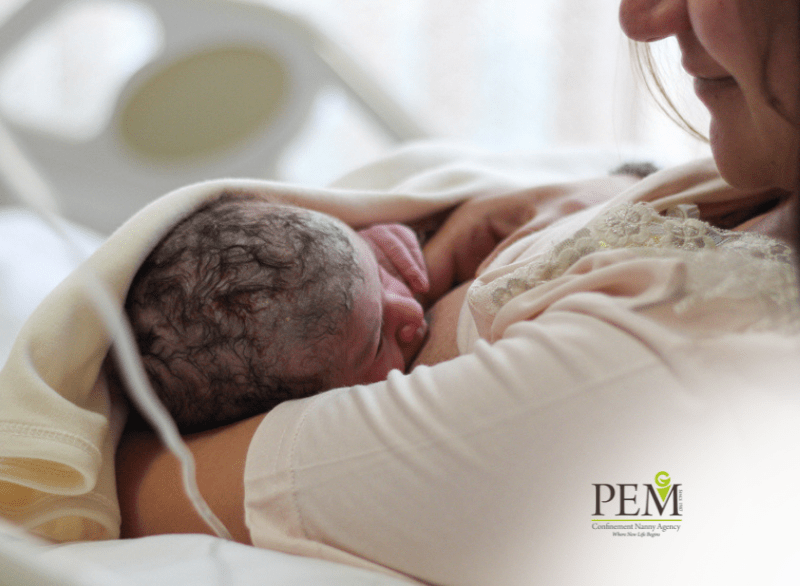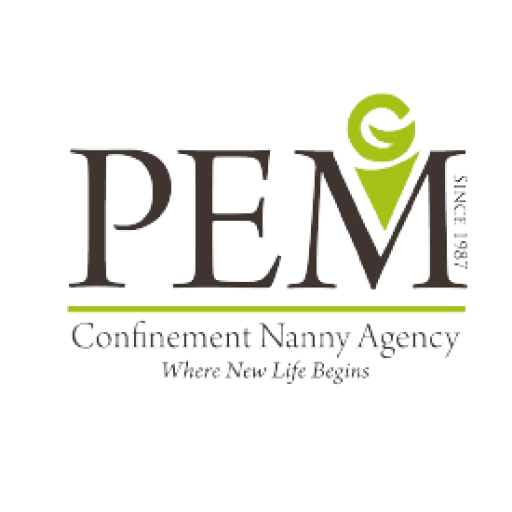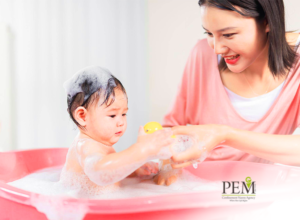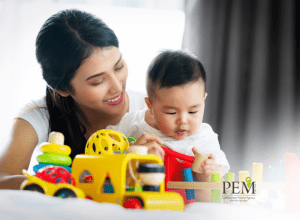[email protected] ♦ (+65) 6293 9249 ♦ Mon - Sun : 10:00AM - 7:00PM
8 Breast Care Tips for Nursing Mums

1. Find the Perfect Bra
Finding the perfect bra plays a crucial part especially in a mummy’s daily lifestyle. You would not want to be putting on something that looks nice but is not comfortable for you in the long run. It is important for you to understand that your breast size tends to get bigger as it becomes engorged with milk, therefore it is important to have a nursing bra that fits in properly.
Nursing bras are very user-friendly as they could be adjusted to your changing breast size to ensure the blood in your breast soft tissue flows regularly. Try to avoid underwire bras as much as possible as they may put too much pressure on your milk ducts, which may lead to mastitis. Mastitis is a breast inflammation which is usually caused by infection. It can leave mummies feeling very tired and also run-down.
2. Keep Them Clean
Every part of our body needs that extra love and care especially when you have your breasts putting in the work to feed your babies. It is also important to prioritise hygiene when it comes to breastfeeding as there is a higher risk for infection when you are lactating.
The basics are, always make sure to wash your hands before breastfeeding or touching your breast in general as our hands carry the most bacteria. Other than that, avoid washing your nipples with soap as it removes natural oil and will only create irritated skin that causes dryness. You can always clean your breasts regularly with just warm water.
3. Learn to Feed Properly
Knowing how to feed your baby correctly would avoid tons of different breast problems such as sore nipples, engorgement, plugged ducts and even mastitis. The basic thing to be assured of is to make sure your baby latches on correctly with the whole nipple in his or her mouth along with a large area of your areola.
Never ever pull your baby off forcefully from your breast when you want to break suction. You can always end your baby breastfeeding by putting your clean finger in the corner of your baby’s mouth to break suction.
It is understandable that all this takes practice and you might need an extra hand to help teach you the right way to feed your baby. Hiring an experienced confinement lady will make wonders for your breastfeeding journey to help guide you through. At PEM, our confinement nannies are experienced and well-trained to guide on you how to breastfeed and take care of your breasts.
4. Feed Regularly
It helps to have a regular feeding schedule for your breastfeeding. It is recommended to have 8 to 12 feedings per day as it helps reduce engorgement in addition to building a new schedule for your newborn. Feeding both breasts equally also helps to balance them out. Some babies have their own preference on which side to feed from. Hence, you may try to offer your baby different sides of your breast and monitor how they feed.
5. Look Into Breast Pads
Breast pads help as it adds an added layer to prevent your milk from leaking through your shirt. You need to ensure that you change your breast pads frequently as soon as they are wet for basic hygiene purposes as well. Other than that, breast pads help to decrease soreness in your nipples, reduce thrush and lower your chance of developing mastitis as well.
6. Use Moisturisers
You need to keep your breast area well moisturised to avoid painful, dry and cracked nipples. Apart from using a moisturiser, you can also try massaging your nipples and areola with your breast milk to keep it moisturised. Also, you can get some special cream targeted for nipples. Do not use harsh chemicals or additives that might harm your skin or your breastfed baby.
7. Don’t Skip Breast Exams
Always have a regular breast exam as one of the main items to do on your checklist as well. Especially when lactation might cause blocked ducts or lumps to form in your breasts, it’s also important for you to check the condition or your breast regularly, and if you feel anything unusual, be sure to schedule an appointment with your doctor and get professional advice.
8. Discuss Soreness With Your Doctor
While you are visiting your doctor, do inform the doctor of any nipple soreness that persists upon breastfeeding. Doctors will recommend the products that are safe and do not clog your milk ducts.
We hope that all these tips are helpful for our fellow mummies who are on their breastfeeding journey, and help make breastfeeding a more fulfilling experience for you.
Giving birth soon? If you are looking for experienced and trusted confinement nanny service to help you with confinement care, newborn care and breastfeeding guidance, we at PEM Confinement Nanny Agency are here for you.
Different from confinement centre Singapore service, we offer in-home confinement nanny service to give you and your newborn the best care in the comfort of your own home. On top of giving breastfeeding guidance, our confinement nanny is able to help with tasks such as cooking nutritious confinement food for you, doing basic house chores, and also taking care of the baby while you get the ample rest to recover.
At PEM, our utmost priority is to provide you and your newborn the best care during confinement, so that you can focus on recovery and bonding with your little one. Let us help make your post-pregnancy journey a more fruitful one. Learn more about our confinement nanny Singapore service, call us at +65 6293 9249 (reachable from 10a.m. to 7p.m. daily).
You May Also Read This : Breastfeeding Guide For First-Time Moms







